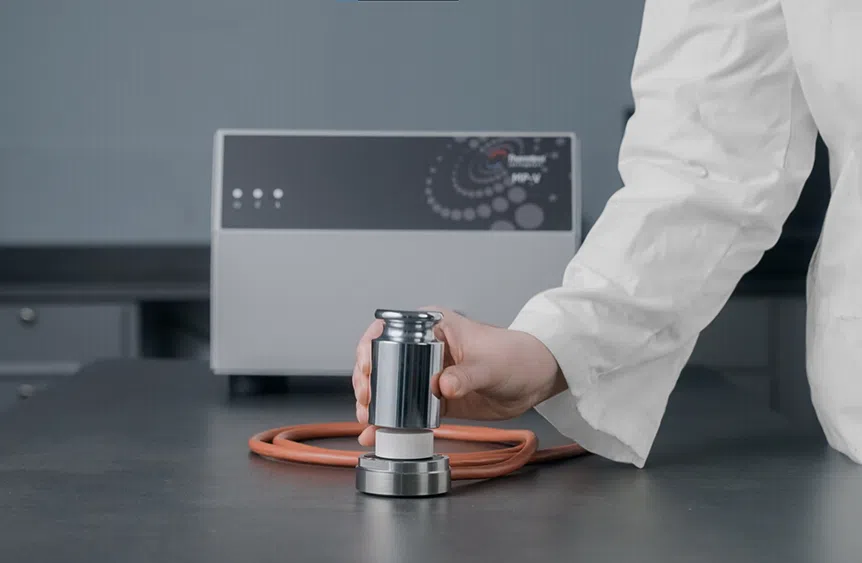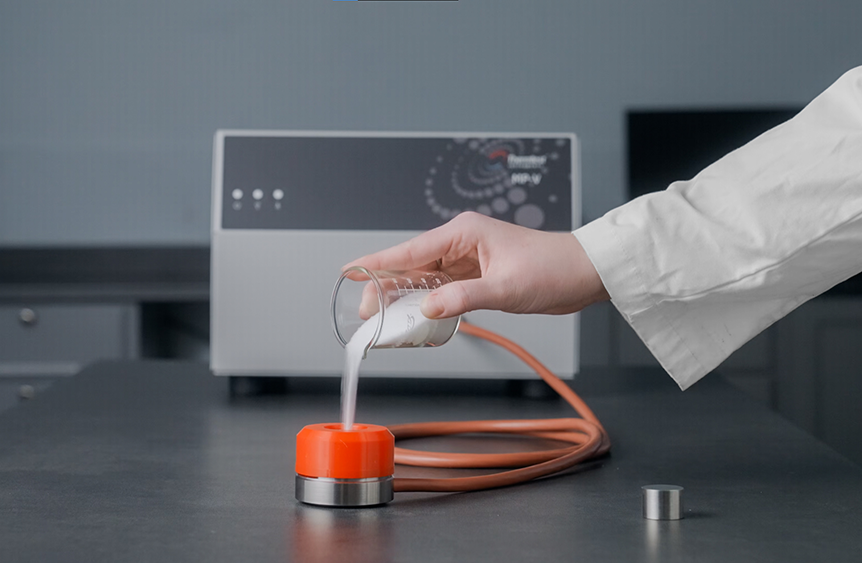
February 16, 2024
Thermtest, a trailblazer in thermal conductivity instruments since 2005, has revolutionized the field of thermal conductivity with the Modified Transient Plane Source (MTPS) sensor. This single-sided sensor is characterized by its unmatched capabilities in measuring thermal conductivity, thermal diffusivity, and thermal effusivity of nearly all material types.
Thermtest prides itself on evolving intelligence, empowering understanding, and reaching the apex of technology. Thermtest is committed to providing the best testing solutions tailored to specific applications. With a diverse selection of thermal conductivity equipment, Thermtest ensures that the instrument chosen aligns seamlessly with testing requirements and industry standards.
Let’s delve into the groundbreaking features that set Thermtest’s MTPS sensor apart from the competition and find out, can your MTPS sensor do this?

The MTPS optimizes user experience by providing intelligent technology that saves time and ensures accurate results, without the need for calibration. The Modified Transient Plane Source Sensor (MTPS) comprises of a TPS sensor configured with known backing insulation, permanently housed in a rugged single-sided configuration. This unique design combines the intelligent design of sensor and measurement capabilities to generate bulk and directional properties for all material types.
This design enables precise measurements of absolute thermal conductivity, thermal diffusivity, and thermal effusivity without requiring factory calibration. As a result, this not only saves time but also increases the dependability of the outcomes, setting Thermtest sensors apart in the market and giving them an edge over their competitors.
The MTPS sensor offers unmatched convenience and versatility by measuring thermal properties across a broad temperature range (-50ᵒC to either 100ᵒC or 200ᵒC) without needing a contact agent. In addition to increased convenience, testing of porous rigid materials is now possible.
If your MTPS sensor requires a contact agent, the accuracy can be reduced on porous material as the contact agent will soak into the sample and affect results. Understanding how thermal conductivity varies with temperature helps characterize the thermal properties of materials, which can be crucial for selecting materials in various industries, such as manufacturing, electronics, and construction. This feature facilitates exploration in numerous applications, making Thermtest sensors adaptable and user-friendly.

The MTPS sensor’s unique capability to measure samples with a test time range from 2 to 160 seconds provides invaluable insights into material. This flexibility enhances understanding of materials’ characteristics by allowing measurements at different penetration depths. When making measurements using the Transient Plane Source (TPS) method, it is essential to select an appropriate test time to maximize the measurement’s sensitivity to the sample’s thermal properties.
Uniquely developed by Thermtest, the MTPS sensor, equipped with the Slab module, can accurately measure the thermal properties of thin-sheet materials, starting from 0.2 mm thickness, using only a single piece of sample.
Knowledge of the conductivity of sheet materials is crucial in various industries such as electronics, aerospace, automotive, renewable energy, construction, medical devices, heat exchangers, HVAC systems, telecommunications, and consumer electronics. This feature opens new possibilities for industries working with thin materials, ensuring precise and reliable measurements.
The MTPS sensor excels in measuring the directional thermophysical properties of anisotropic materials, allowing users to explore axial and radial characteristics without the input of specific heat. This capability provides crucial insights into the thermal behaviour of complex, layered materials.
Understanding a material’s axial and radial thermal conductivities is vital for various engineering and scientific applications. Axial conductivity refers to the ability of a material to conduct heat along its length. Knowing the axial thermal conductivity is essential for analyzing heat transfer in one-dimensional systems, such as a rod or pipe.
Radial conductivity refers to the ability of a material to conduct heat across its cross-section. It is critical in applications where heat is transferred radially, such as cylindrical or spherical geometries. Understanding radial conductivity is essential for heat transfer in systems like pipes, wires, or electronic components.

With its rugged design and durable casing, the MTPS sensor is built to withstand real-world challenges and deliver optimal performance in demanding conditions. Its resilience underscores the reliability and durability of the sensor, proving its ability to withstand the test of time and various environmental factors.
Thermtest’s MTPS sensor emerges as a pioneering solution in thermal conductivity measurement. Its spectrum of features caters to diverse testing needs and applications, making it an indispensable tool for industries pushing the boundaries of material science and thermal research. Thermtest continues to lead the charge in providing intelligent, reliable, and innovative solutions that empower researchers and engineers worldwide.
When faced with the question, Can Your MTPS Sensor Do This? Remember, Thermtest’s MTPS Sensor can. Connect with a member of our sales team to secure your free MTPS when you purchase an MP-V from now until March 31, 2024.